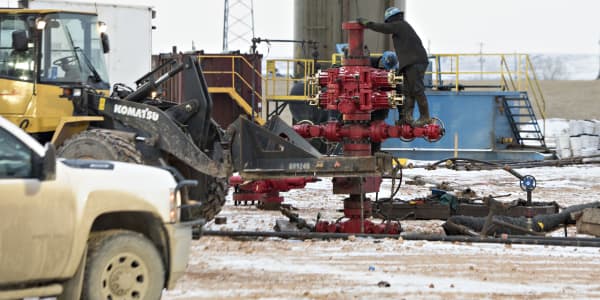Spurred partly by President Obama's plan to reduce coal emissions to fight climate change, utilities are preparing bids to extend the operating licenses of nuclear plants to as long as 80 years, a move that could begin to become public this summer.
The idea is that the administration's plan, which will not be final until next year and is already being challenged in court, will force utilities to curb their use of older, coal-burning electricity plants, which contribute about a quarter of U.S. carbon emissions, according to the U.S. Environmental Protection Agency. Like nuclear, coal is a primary source of so-called base-load power, typically running nearly all day while renewables and natural gas–powered electricity are used to meet surges in "peak load" demand.
U.S. nuclear plants are licensed for an initial term of 40 years, but 76 of America's 99 nuclear plants have already seen their operating licenses extended to a term of 60 years, according to the Nuclear Regulatory Commission data. The electricity industry says the plants are safe and that the 40-year terms were chosen because that's about how long it took to pay for the plants.
"If we have any chance to meet the emissions goals, most people don't see how it can be done [without] these plants," said Clay Perry, a spokesman for the Electric Power Research Institute, a Washington-based nonprofit group that studies energy technology.
Read MoreWarren Buffett's inside war between coal and solar
Because nuclear plants generate base-load power, it's difficult to replace them in the short term with wind-powered or solar electricity plants, which are often used to generate peak-load power, said Tina Taylor, EPRI's research director for nuclear power. The practical alternative to extending nuclear licenses is to expand the use of natural gas–fired base-load plants, which emit about half as much carbon as units that burn coal, she said. In an interview with CNBC this week, one analyst said the transition from coal to natural gas has been "stunning."
If we have any chance to meet the emissions goals, most people don't see how it can be done [without] these plants.Clay PerryElectric Power Research Institute spokesman
But nuclear power plants are clearly going to remain in the mix, and maybe for longer than expected. Among the first plants that may seek license extensions are Dominion Resources' Surry Plant in Virginia; Exelon's Peach Bottom plant near the Pennsylvania-Maryland border and Duke Energy's Oconee plant in South Carolina, sources close to the discussion said.
Officials at all three companies acknowledged they are studying how and whether to prepare for a license-extension application, but either declined to comment on timing or said the utilities had not decided when to file.
"The first of our Duke Energy nuclear units will approach the end of their renewed licenses in the early 2030s, and we are currently evaluating opportunities and challenges associated with operating our nuclear generating units for an additional 20 years," Duke spokeswoman Rita Sipe said in an email.
The government has been preparing for these renewal applications since even before the president's carbon-reduction plans were disclosed last June.
Read MoreA Saudi shale boom in the making
In a January 2014 report, the staff of the Nuclear Regulatory Commission requested commission approval to update the agency's rule-making process to prepare for subsequent power reactor license-renewal applications. At that time, the commission rejected the staff's request, spokesman Scott Burnell said. Commission documents released previously had indicated that 80-year renewal applications were likely, but probably not before 2017.
Going long on nuclear
"We're looking at the asset and considering seeking a second renewal to assure the plant is still available," Dominion spokesman Rick Zuercher said. "We have a team looking at it. … Nuclear emits virtually no greenhouse gases, and it's the cheapest electricity we produce in Virginia."
Exelon also has a team of executives preparing for a potential extension for Peach Bottom, spokesman Dave Tillman said. "The required years of review of plant design and performance data proves that it's battle-tested,'' he explained.
Owners often replace many of the electronics and other equipment at nuclear plants, like 43-year old Surry, where concrete and the steel containment vessel for nuclear material are original equipment, Zuercher said. Its license runs until 2032, but moving far in advance is not unusual: The plant's Unit 1 reactor license was first extended in 2003, a decade before the expiration of its initial term.
Nuclear power provides about 20 percent of U.S. electricity, roughly half as much as coal. By 2040 half of the nation's nuclear power plants will have been operating for 60 years, and by 2030 the United States could experience electricity shortages if a significant number of nuclear plants are retired in a short period, according to the industry's trade group, the Nuclear Energy Institute.
The nation's oldest nuclear plant won't see its 60-year license expire until 2029, the year before the administration's plan will require a 30 percent cut in carbon emissions from the electric power sector.
—By Tim Mullaney, special to CNBC.com




